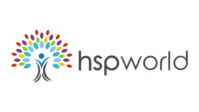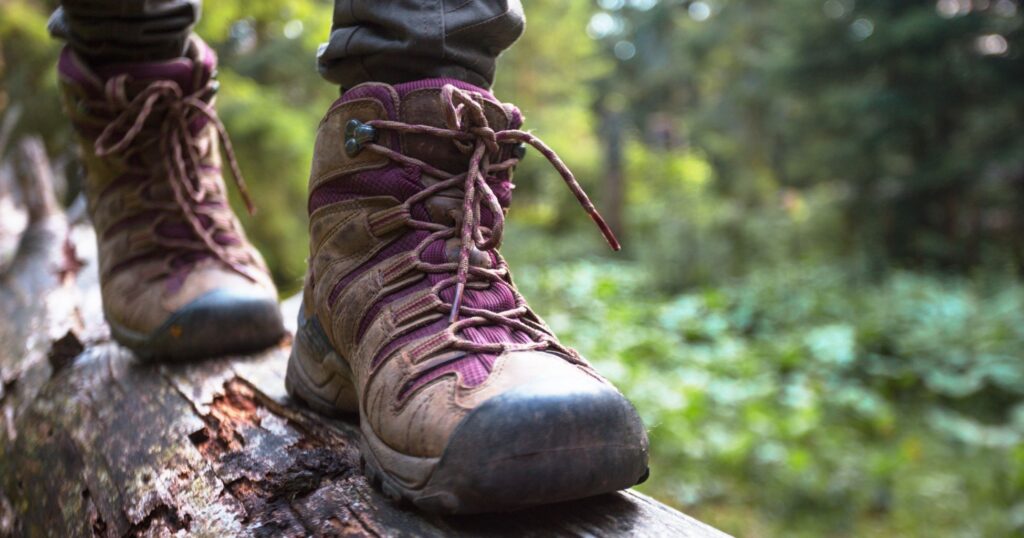Highly Sensitive people have a natural gift for adaptability.
After all, we begin adapting to the world around us the minute we’re born, into a world not set up to understand or accommodate our highly sensitive nervous systems.
Does that mean we can’t gain more self-confidence? Absolutely not.
In fact, the opposite is true.
We can gain more self-confidence by using our;
- ethics and values
- ability to adapt
- intuition
- ability to increase our self-care
- and by creating a self-reflecting habit
Let me explain.
About a month ago, I was excited about getting some movie-watching treats before watching a movie I was looking forward to.
I’d bought a new pair of hiking shoes. You know, the high-top kind with those little metal loops you wrap the laces around?
Because I was excited, I decided I wouldn’t slow down and take the time to lace the laces properly. Instead, I shoved them under the tongues and lit out.
It all went great until I exited the store and began walking home when one shoe grazed the other, hooking the metal loops, which caused me to trip and fall.
Nothing major except a skinned knee.
Of course, I was embarrassed because the shop owner, who had been unloading products to go into his store, and had seen me fall.
He rushed over and asked if I was alright.
“I’m okay,” I reassured him, easing his concern.
He watched me until I got to my feet, and then, with a smile, he returned to his work, carrying a box into his store.
As I took another step, the metal loops grazed again, but this time, I just stumbled and didn’t fall.
“You stupid shoes!” I pronounced loudly at them accusingly and glared at them.
Then I carefully walked back home, muttering to my shoes to quit doing that.
When I got home, I examined my skinned knee and applied first aid.
Now, let me explain how that excursion impacted me and how I gained more self-confidence.
Ethics and Values
While applying first aid to myself, I calmed down and thought, “Are the shoes stupid?”
Or was it my fault for not taking the time to properly lace them up so the metal hooks didn’t catch?
Here’s where honesty, based on ethics and values, comes in.
If I was being honest with myself, I had to take responsibility.
The shoes weren’t stupid; it was my fault for not taking the time to lace them up.
Honesty, in other words, ethics and values, is also linked to mental health.
Have you ever met someone who lies a lot?
They don’t tend to have good mental health because they don’t grasp reality well – they’ve created too many false realities and end up confusing themselves.
This impacts their self-confidence, and they tend to use bravado instead, the opposite of self-confidence.
This is why it’s important to slow down and take time to ensure that you’re constantly aligning yourself with your values and ethics.
Which leads us to the next step.
Adaptation: A Key to Self-Confidence
Now that I’d taken responsibility for my actions, I could investigate and reflect on the deeper meaning of what had happened, why it had happened, how I could prevent it from happening again and how I could make improvements, which would increase my self-confidence.
In other words, I was ready to adapt.
Because really, how self-confident can you be going around tripping and falling every time you go out?
Adapting is about being open and willing to learn from life’s events, knowing each is an opportunity to improve our life.
Using our Intuition
Next, I was able to use my intuition. In my view, intuition is linked to having a spiritual relationship with the Creator/God/Buddha/The Light.
Whatever you call it, it boils down to believing in a power greater than ourselves that wants the best for us.
You may not believe in a higher power. No problem; you can easily believe in the concept of consequences.
I’ve invested time in creating a relationship with The Light by investing in a meditation habit that includes gratitude, so I used my intuition and asked for guidance.
The guidance I quietly received was to “slow down.”
It was straightforward but also multi-layered, with deeper meanings.
I began to understand that sometimes, in our rush to move forward, we overlook the small details that can make a big difference.
Slowing down doesn’t mean we’re not making progress; we’re being mindful and considerate of our actions.
By being mindful, slowing down, and taking the time to do things properly, I would continue to boost my self-confidence, self-discipline, resilience, and ability to deal with adversity.
This meant I’d also need to invest more time and thought into increasing my self-care.
Increasing Self-Care
Self-care is about self-compassion, self-forgiveness, developing more patience, setting healthy boundaries with myself and others, practicing self-discipline, looking for creative solutions, and reaching out for help to others and The Light.
Sounds straightforward.
But most of the messaging we receive from the outside world is about quick fixes and shortcuts.
But building self-confidence is an inside job; you won’t gain it by using quick fixes or shortcuts.
In a struggle we learn to overcome obstacles with patience and persistence. These struggles, no matter how daunting, are opportunities for us to gain strength and wisdom and, ultimately, build our self-confidence.
Having self-confidence comes in handy when life throws you a curveball.
There are all kinds of curveballs, struggles and challenges we can experience in life.
Like the loss of a job, loss of a friendship, death of a spouse or loved one, thoughts of suicide, challenges with alcohol, drugs, or gambling, homelessness, infidelity, and the list goes on.
These struggles test our self-confidence and give us the challenges we need to adapt, change, grow, and ultimately overcome.
Our struggles are nature’s or the Creator’s way of allowing us to continue building and strengthening our self-confidence.
Nature isn’t stagnant; it’s constantly adapting, changing and growing. Take a walk in a forest and see for yourself.
As we keep investing in building our self-confidence, we realize there’s no obstacle too big.
It doesn’t matter the obstacle.
Whatever the obstacle, we can adapt and overcome it; in doing this, we gain more self-confidence.
Creating A Self-Reflecting Habit
Another bonus I realized after continuing to take the time to reflect was that I had gained a powerful tool that has helped me gain more self-confidence. Which I’ll be sharing in the future.
I won’t be sharing it on social media, though.
About a year ago, my phone was hacked, and I lost access to the HSP World social media accounts.
I tried to retrieve them, but to no avail, so the accounts have been abandoned.
Ironically, this has given me more time to invest in increasing my self-confidence.
Have you found similar or different ways to increase your self-confidence?
If you’d like to share your perspective or experiences, comment below.




